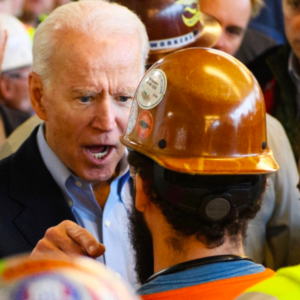With a frenzy of executive orders coming out of the Biden White House, it’s tough to keep track of every policy change that’s happening. Maybe that’s by design, because Biden’s recent rollback of expanded apprenticeship programs serves no one but big business and big government. Efforts in Congress double down on this rollback and continue to stifle the opportunities that come from apprenticeships.
In several industries across the country, the demand for skilled, so-called “blue collar” jobs is so great that there are more job openings than workers available to fill them. Apprenticeships can play an important role in filling these job openings. Unfortunately, unions have had far too much power over this process for the past several decades, narrowing or ending the ability of trades to recruit new employees without jumping through their hurdles. The Trump administration worked to level the playing field by removing some of these barriers, and to help offer young Americans a viable addition to or alternative to a traditional, four-year higher education pathway.
The Trump administration started the National Council for the American Worker and widely promoted the “Pledge to America’s Workers.” The pledge, ultimately signed by 430 companies, was to create 16 million new education and on-the-job learning opportunities for employees at the companies that signed.
The Trump administration also relied on its Task Force on Apprenticeship Expansion. The task force recommended the administration create the Industry Recognized Apprenticeship Program (IRAP) to complement the existing apprenticeship environment. IRAPs are smart public-private-partnerships. They ensure needed apprenticeship programs are not only available, but that they work and make sense with the existing policy environment.
Perhaps the most significant step the Trump Administration took was signing an executive order to expand apprenticeship programs in America. This order set the tone for every policy decision or executive effort associated with apprenticeship programs. The order’s purpose was to respond to the rapidly rising cost of higher education, and the stark reality of student debt in America. The cost of attending a four-year college or university has increased by nearly 500 percent since 1985. Finding an alternative path to success is even more lucrative when one considers the fact that 45.3 million Americans have student loan debt averaged at roughly $37,700 per person.
President Trump’s action on apprenticeships just further highlighted what many have known all along: Not every American needs to go to a four-year university to pursue the American Dream and find a well-paying job. It’s controversial, but true.
Fast forward to 2021 and we’re seeing a dramatically different situation. After a year of blue state lockdowns closing more than 140,000 small businesses across the country, further bullied blue collar workers by rolling back these valuable apprenticeship programs.
New efforts from the Biden administration and House Democrats want to destroy one of the most crucial requirements of apprenticeships: its flexibility. H.R. 447 intends to double down on these attacks.
The bill would remove the ability of employers to identify the skills their workers need and would instead force them to conform their workforce development efforts to a predetermined mold designed by the federal government. In addition, the bill includes dangerous language, which could require new apprenticeship programs to partner with existing labor unions to gain approval.
Apprenticeships require tailoring. A successful workforce development program exists when employers and job seekers are able to respond to the particular and individual needs or skills that an industry and an employer require. These are the men and women who know what should be in or not in a given program. Government bureaucrats in Washington, D.C. can’t possibly have the right information, and union leaders don’t speak for everyone.
This bill and Biden’s rollback are just another example of his war on America’s working class. This one-size-fits-all approach to cripple Main Street America—drummed up on some Zoom call in Washington, D.C.—by Democrats, unions, and entrenched bureaucrats. What’s worse is that this change makes apprenticeships strict and rigid when they are typically hallmarked by just the opposite: variation and uniqueness. Instead, Washington should let Main Street and everyday Americans decide for themselves how they want to navigate the workforce.

